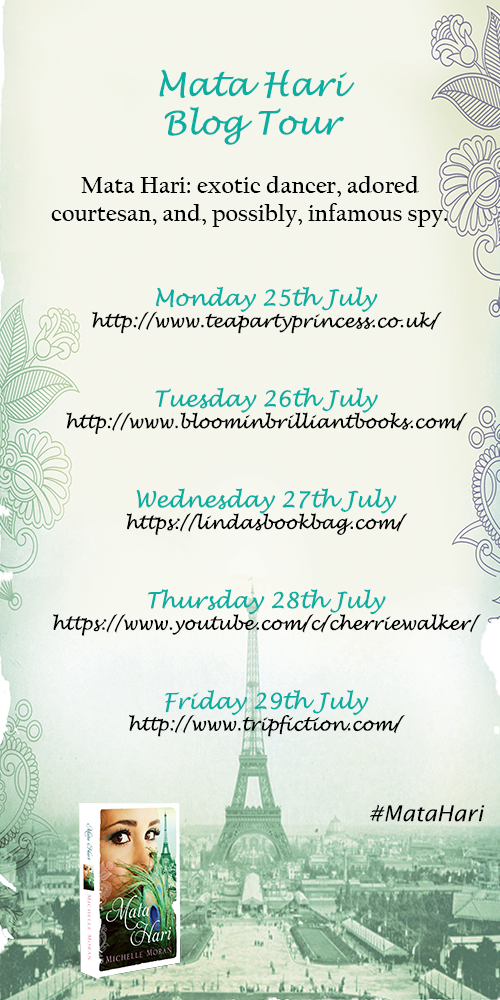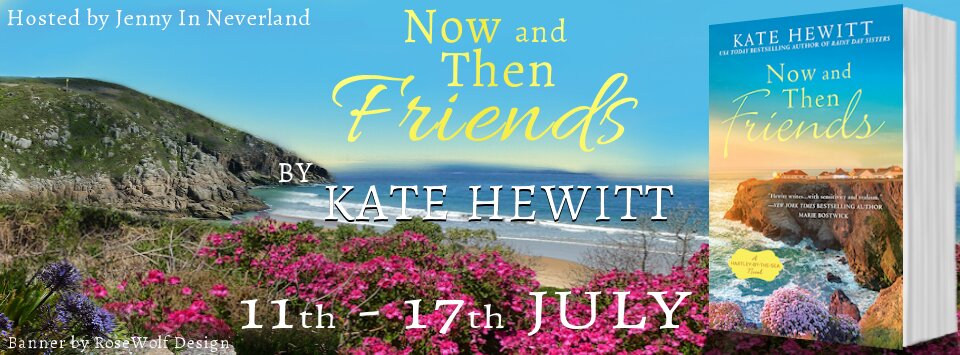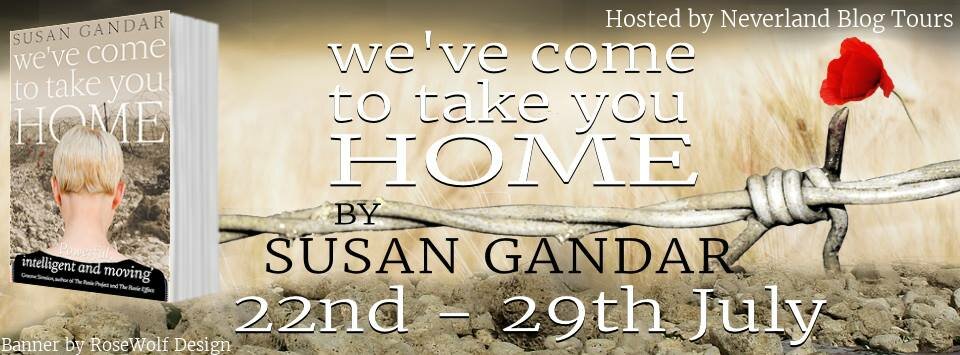
The final stop on the We’ve Come to Take You Home blog tour, I am thrilled to bring you an insightful Q&A session with the author, Susan Gandar. I am extremely pleased to be hosting this as I adore this book! You can also read my review and a bio of Susan.
So first up here is my Q&A session with Susan –
We’ve Come to Take You Home is such a unique novel, what inspired the stories of Sam and Jess and the relationship between the two of them?
When I was in my early teens, the time in your life when you think you know everything, when in fact you know nothing, I was in the car, with my father and mother, and my mother was talking about something that had happened, in the past. And I said, ‘The past! What’s the past? It’s only the future that matters.’
My parents, particularly my mother, were furious. But it took many years for me to understand the clumsiness of my comment and why it angered, and upset, my mother so much.
My grandfather, on my father’s side, fought in France during the First World War. He was badly wounded and shipped back to England. It was on a hospital train, rattling its way through France, he met my grandmother, Bertha – it was she who nursed him. After the war ended, they married – theirs was a happy ending.
My mother’s father, my maternal grandfather, also left home and went away to fight in the First World War. But he came back a shadow of himself. He was someone, and I have a very dim memory of him, who you weren’t allowed to touch or talk to – because if you did, he would explode, physically and verbally.
It has taken me years and years to understand and appreciate all this. So, I wanted to write a book which showed the link between now, the present, Sam in the book, and the past, Jess in the book – which tried to explain, show, that we wouldn’t be living the lives we have now without the sacrifices our parents, grandparents and, perhaps, even great grandparents made for us during their lives.
Jess’ storyline evolved out of all the research I did on the Home Front during the First World War. Sam’s story, though, is rooted, very firmly, in my own reality. My mother, very suddenly, without any warning, had a brain haemorrhage. And everything that Sam goes through, I went through – waiting for the ambulance, sitting in the family room, the Intensive Care Unit, all of it. The sister in the Intensive Care Unit asked me to hold my mother’s hand, said that it would help if she knew I was there – and, like Sam, I couldn’t do it. Sam gets a second chance. Sadly, I didn’t.
It’s the old skeleton, the one we, and the society we live in, hide in a cupboard. We lock it in and throw away the key in the hope that it will never get out. But, of course it will. Because the day we are born, is the day we die. And that’s the one thing, whoever we are, wherever we live, man, woman, rich and poor, we all share – death.
In We’ve Come to Take You Home, Sam can only conquer death if she overcomes her fear. I wanted to write a book which would, even in just a small way, get that skeleton out of that cupboard and shake it around a bit. Try and make it into something we could actually accept, even talk about, be just a little less afraid of, rather than something we run away from.
What and who encouraged you to take the plunge and write
your first novel?
We have two wonderful god-daughters, Livvy and Alice. Livvy adored Harry Potter. She read every book, however long. But Alice, the other god-daughter, hated Harry Potter. The characters were pretty much all male and she was less than impressed with the wizards. She pronounced it silly. And asked me one day, if I might write a book, specifically for girls, with female protagonists, which didn’t have any wizards, and wasn’t ‘silly’.
So I started to write a novel aimed at 8 – 12 year olds with two girls, loosely based around Livvy and Alice, and storylines set in the present and in the First World War. But it became increasingly clear that I couldn’t write the First World War, the way I wanted to, if I stayed within that age group. So I decided to go for an adult/YA crossover, replacing a present day plot line focused around a dolls house with the brain haemorrhage story, and making the past storyline, running from 1914 through to 1918, much, much tougher.
Was it easy to get We’ve Come to Take You Home published?
Not at all easy. It had been rejected by so many agents that I was at the point of giving up. And approaching traditional publishers, the larger ones, without an agent on board is impossible. And it was the same with the majority of the smaller, independent publishers although, thankfully, that’s beginning to change. So ‘We’ve Come to Take You Home’ was partner published with Matador. But, I’m really hoping, given the really great reviews it’s getting, from both UK and from across the world, it will now catch the eye of an agent.
What is your writing process? Was the novel carefully plotted or did you write and see where the story took you?
I do an outline, plotting the basic contents of each individual chapter, from the first all the way through to the last. Some might say that to write that way is restrictive. Personally, I find it liberating – when I start on the actual putting down of words, I pretty much know where I’m going and so can relax into it. And, I honestly think, given ‘We’ve Come to Take You Home’ has such a complicated and ambitious structure, there was no other way of doing it. Although, saying that, I’m always open to new ideas, even if that does mean making some hefty changes. For example, right at the very, very last minute, Chapter Thirty became Chapter One!
I’m also a very visual writer – something I’ve inherited from my film and TV background. So I will see each chapter or sequence visually inside my head, a bit like film being projected onto a screen. And then the task, and it’s a hard and a slow one for me, is to take those images and turn them into words on the page.
How do you overcome writer’s block?
Luckily, I’ve never had writer’s block, the really serious kind which stops you from writing for weeks, months, if not years. Yes, some days, even weeks, go better than others. But I find when nothing is coming, there’s no energy there at all, it’s better to go and do something else. Walking the dog, doing some gardening, cooking supper, doing something physical rather than sitting there at your desk staring at the computer, is often when you have your best ideas. I’ve also learnt that if something really isn’t happening, that a paragraph or chapter, really isn’t flowing, even though you’ve tried and tried again, it’s usually for a very good reason – it shouldn’t be there.
Reading as much as I can, surrounding myself with words, really helps. And I have done meditation but always in a group as I’m hopelessly ill-disciplined when left to practice on my own. Because, for me, writing is a sort of meditation – it’s only when my mind is completely clear that the words start flowing.
Life during World War 1 is told so vividly throughout the book, did you have to do a lot of research and if so how did you research it?
Yes, I researched, for something like two years. Reading everything and anything I could get hold of, whether fiction or non-fiction, watching films, visiting museums, looking at paintings, reading or going to plays written at that time. Everything. But it was the letters, written from wives, girlfriends or sisters to their husbands, boyfriends or brothers fighting out in France, and vice versa, that had the most profound effect on me. And reading their diaries. I really, really didn’t want to let those people down. But there also comes a time when you have to say I’ve read so many, many books, one more is not going to make much of a difference, I must get on with the actual writing, plotting the outline, because if I don’t it will never every happen.
How did you go about developing the characters of Sam and Jess?
I always knew I wanted the two girls, one in the past and one in the present. Jess partly evolved out of all the research into the Home Front during the First World War. Sam from the present day girls I had met and talked to, including our two god-daughters. That’s the ‘shallow’ side of them – their ages, where they live, their education, their family, their friends etc. But their ‘deep’ emotional character, what they are prepared to fight for, even die for, was developed from the situations they found themselves in, how they reacted, what they felt, and the decisions they made.
Sam and Jess are separated by time, life and death, however, despite never meeting they have a connection. Do you believe in, for use of a better term, supernatural forces?
Yes, I do, definitely believe that there is something else beyond the here and now although I prefer to describe it as spiritual rather than supernatural. I think it would have been very difficult to write this book, the way it is, without that belief. It certainly wouldn’t have had the same conviction or depth of emotion.
It’s such an emotional and moving book, was it difficult to say goodbye to Sam and Jess once you had finished writing the book?
Very difficult. They’ve both been with me for so very long. And I’m also very, very fond of Tom and, of course, Ellie. I have thought about doing a sequel but, right now, I really not sure that it will work. ‘We’ve Come to Take You Home’ is so rooted in emotion and I’m concerned that any sequel would tend to be more plot led, less moving, which could be a disappointing read after the emotional depth of the first book. So, maybe, it’s time to say good-bye to Jess and Sam, let them move on and let them live their own lives, in other people’s imaginations, without me?
What authors inspire you and what are your all time favourite books?
I read so much, so many different genres, by so many different authors, so it’s almost impossible to select any one, two or three or four. I’m a member of a brilliant reading group. Last month’s book was Anthony Doerr’s All the Light We Cannot See which I, and the rest of group, rated as one of our all-time favourite reads. But the following have also been my most recent really enjoyable reads :
A SPOOL OF BLUE THREAD by Anne Tyler
BLOOD AND BEAUTY by Sarah Dunant
Richard Flanagan’s THE NARROW ROAD TO THE DEEP NORTH
And I will read anything by Susan Hill. Her First World War novel – STRANGE MEETING – is a particular favourite. If you had to read one novel about that particular time, that particular war, then that would be the one I would recommend.
THE UNLIKELY PILGRIMAGE OF HAROLD FRY by Rachel Joyce
THE LIGHT BETWEEN OCEANS by M.L. Stedman
But it was Meg Rossoff’s HOW I LIVE NOW, a young adult/adult crossover, which I picked out on an adult shelf, which really opened my eyes to young adult writing. It was so true, so keenly honest, I found it quite shocking, even upsetting.
And, of course, young adult and children’s writer, David Almond, author of SKELLIG, KIT’S WILDERNESS and THE FIRE EATERS. Such beautiful, visual, almost poetic writing.
But it was Marghanita Laski’s THE VICTORIAN CHAISE-LONGUE, a book given to me many, many years ago by my mother, which really helped when I was writing the slips, from one life to another, in We’ve Come to Take You Home.
As the blurb on the back of my Penguin 1962 edition says ‘In this short, eerie novel by the author of Little Boy Lost, a young mother who is recovering from tuberculosis falls asleep on a Victorian chaise-longue and is ushered into a waking nightmare of death amongst strangers.’
Is there a second book planned?
Yes, the working title is ‘Cremated Before Teatime’. It’s based on a true story, set in Sussex and India, during and after the First World War. And that is as far as I’m prepared to go!
About the Book
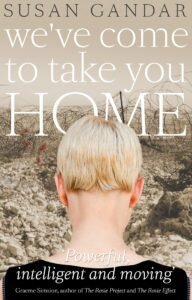
‘Powerful, intelligent and moving …’
Graeme Simsion, author The Rosie Project and The Rosie Effect
‘We’ve Come to Take You Home’ is an unusual and compelling story of love, loss and the importance of family.
Samantha Foster and Jessica Brown are destined to meet. One lives in the twentieth century, the other in the twenty-first century
April 1916 and thousands of men have left home to fight in the war to end all wars. Jessica Brown’s father is about to be one of those men. A year later, he is still alive but Jess has to steal to keep her family from starving. And then a telegram arrives – her father has been killed in action.
Four generations later, Sam Foster’s father is admitted to a hospital’s intensive care unit with a suspected brain haemorrhage. A nurse asks if she would like to take her father’s hand. Sam refuses. All she wants is to get out of this place, stuck between the world of the living and the world of the dead, a place with no hope and no future, as quickly as possible.
As Sam’s father’s condition worsens, her dreams become more frequent – and more frightening. She realises that what she is experiencing is not a dream, but someone else’s living nightmare…
We’ve Come to Take You Home is an emotionally-charged story of a friendship forged 100 years apart.
My Review
Every now and again I read a book that makes me feel so deeply it takes me a few days to move on from it, and it stays in my head (and my heart) for a long time. This is one of those books. For me, We’ve Come to Take You Home is an evocative and poignant portrayal of life during World War 1 and the links we have with our past and our ancestry.
I was immediately drawn to the book by the title and the cover. I can’t fully explain why, but something about them made me want to read this book.
Throughout the book we follow the lives of Sam, a teenager in present day and Jess, a teenager during World War 1. Told through third person narrative with chapters concentrating on one character, the reader is drawn in to the lives of both girls. You know that the two girls are inextricably linked despite being separated by life, death and time and this pulled me into the story further as I wanted to know what the connection was. As the book progressed I had an idea, however, the ending did not in any way disappoint. The parallels between Jess and Sam’s lives, while experienced differently, show us that our experiences are age old and transcend time.
Susan writes beautifully, with rich, vivid descriptions and touching prose. The horrors of World War 1, in particular for those left at home, jump out from the page;
‘The cottage was no longer a home: it was a tomb.’
It is written with great insight and it is clear that a lot of research was undertaken during the execution of this book. The emotions of those living through these experiences are felt by the reader intensely. The futility of their situation is heartrending. This is an extremely powerful read and during it I felt immense sadness. Susan writes in such a way that you cannot help but be affected by what is on the page. Jess’s tale is tragic and heart-breaking and throughout I was rooting for her.
Sam’s situation is also moving, just in a very different way. Her family are going through their own, more modern day difficulties. Sam’s is a story of self-discovery, learning to navigate through life, and the problems that can arise through the course of it and how the past actions of our forefathers impacts on the way we live today.
We’ve Come to Take You Home moved me profoundly. Beautifully written, heartbreaking and totally absorbing. I loved it. A perfect piece of historical fiction that will make you think and feel deeply. An accomplished debut novel, Susan is an author to look out for in the future. Very highly recommended.
Published 28 March 2016 by Troubador Publishing.
About Susan
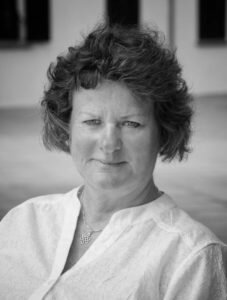
My father, John Box, was a film production designer, working on ‘Lawrence of Arabia’, ‘Dr. Zhivago’, ‘The Great Gatsby’, ‘A Man For All Seasons’ and the musical ‘Oliver’. Our house was always filled with people, usually eccentric, always talented, invariably stroppy, discussing stories. My mother put my father’s four Oscars to good use as toilet roll holders, doorstops and hat stands.
A major chunk of my childhood was spent loitering around on film sets. Who needs an ‘English education’ when you have the polystyrene-coated streets of downtown Moscow, ten miles outside of Madrid, to explore?
But then the years of ‘Who Will Buy My Sweet Red Roses’ came to a rather abrupt end. Reality knocked on the door in the guise of the Metropolitan Line to Shepherds Bush and the BBC. Working in television as a script editor and story consultant, I was part of the creative team responsible for setting up ‘Casualty’. I became known for going after the more ‘difficult’ stories at the same time successfully racking up viewing figures from 7 to 14 million.
I went on to develop various projects for both the BBC and the independent sector. The period I enjoyed most was working with Jack Rosenthal, a wonderful writer, on the series ‘Moving Story’ – ‘That’s a situation, a good situation, but now you need to make it into a story.’
Martin, my husband, was made an offer he couldn’t refuse and we left England to live in Amsterdam. ‘Ik wil een kilo kabeljauw, alstublieft’ will, if all goes well, buy you a piece of cod – I decided to concentrate on my writing rather than my Dutch pronunciation.
My debut novel, ‘We’ve Come to Take You Home’, set in the present and in 1918, a crossover aimed at the adult and young adult women’s popular fiction market, was published on 28th March by Matador.
www.susangandar.com
Twitter
You can purchase a copy by clicking the following links. As a blog tour special, We’ve Come To Take You Home can be bought for 99p/99c on Amazon until the end of Monday 1st August.
Amazon.co.uk
Amazon.com
Troubador.co.uk
A huge thank you to Susan for allowing Bloomin’ Brilliant Books to be a part of the blog tour and for taking part in the Q&A and to the host, Neverland Blog Tours.
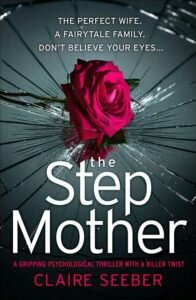
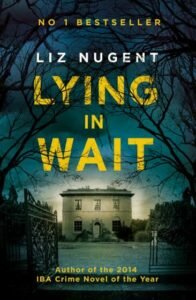
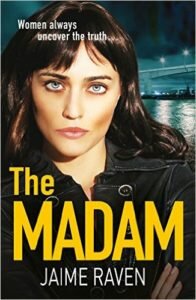

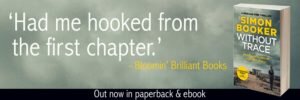
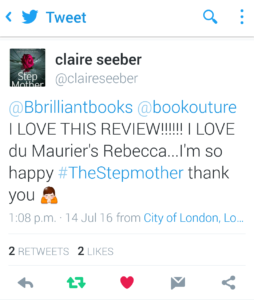
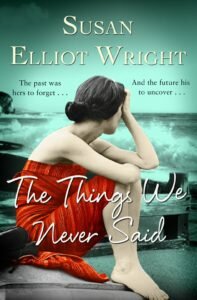
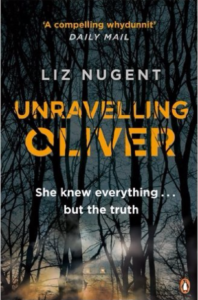

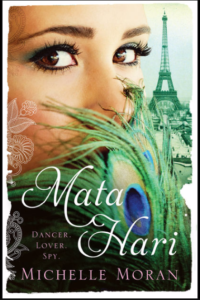



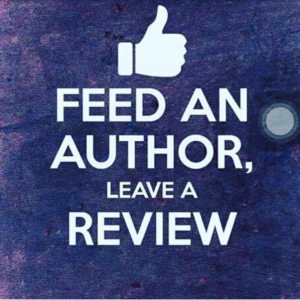

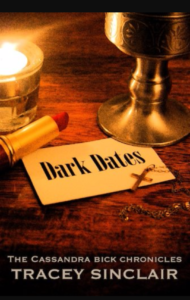
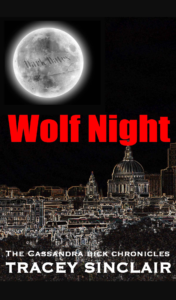
![Pageflex Persona [document: PRS0000026_00027]](/wp-content/uploads/2016/07/Angel-Falls-1_edited-1-29059-193x300.jpg)
![Bridesmaid Blues Final High res [29060]](/wp-content/uploads/2016/07/Bridesmaid-Blues-Final-High-res-29060-188x300.jpg)
